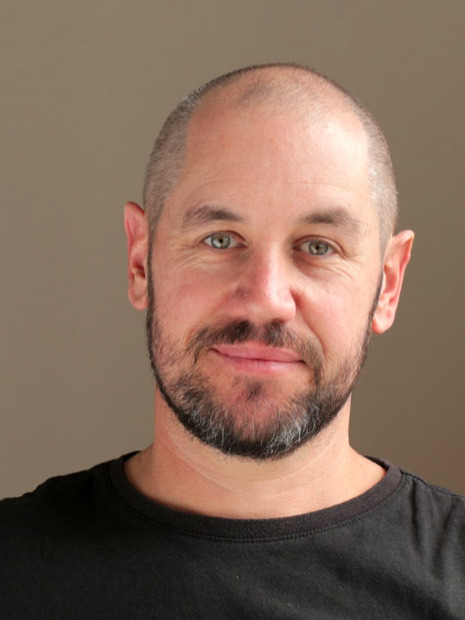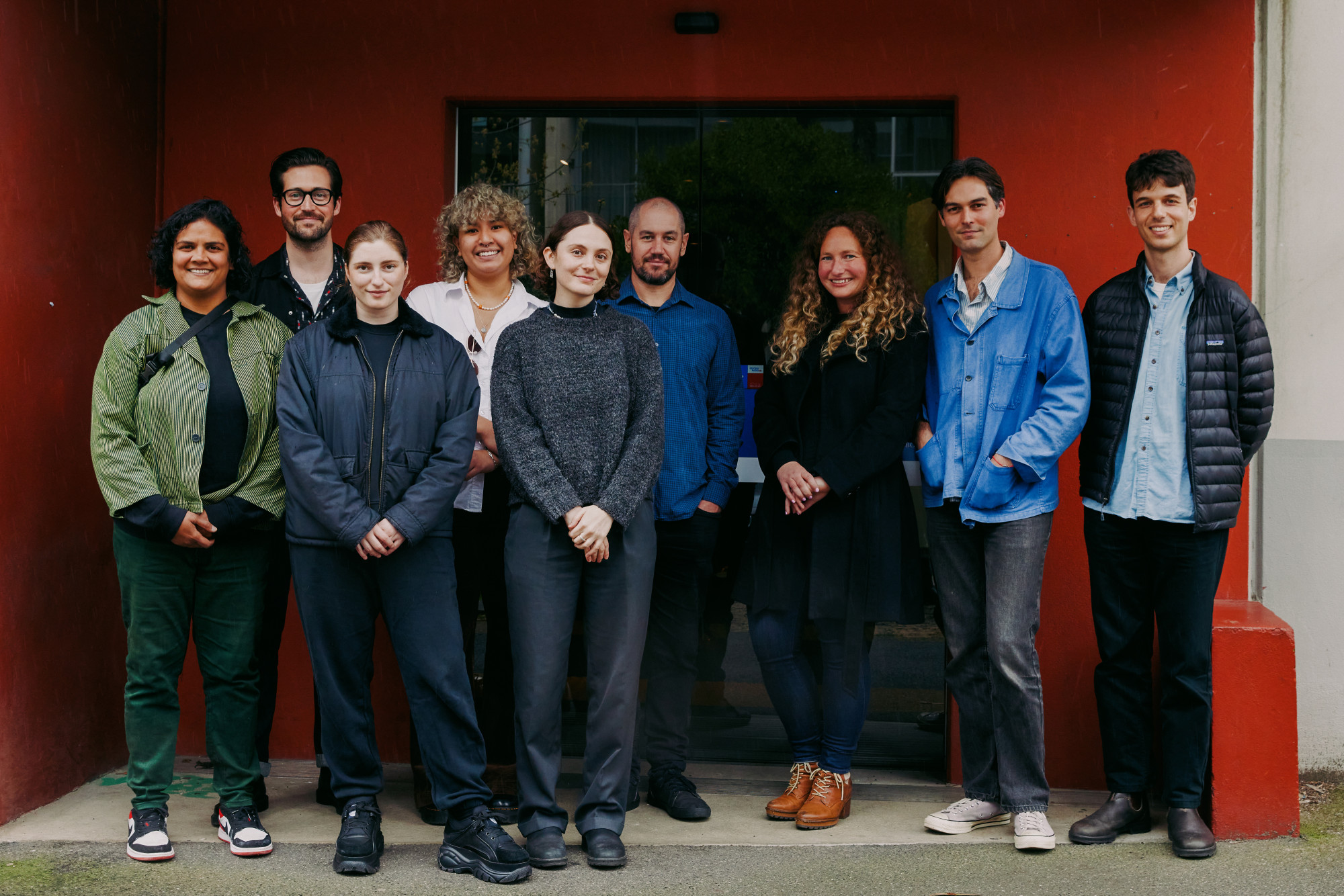Paul Clarke is a Brisbane-based screenwriter and script consultant. His scripts have won the Page International Screenwriting Competition, Final Draft Big Break, and Queensland Scriptwriting 1st Prize at the Screen Industry Gala Awards. Recently, Paul’s script—Roxbury Manor—was selected to take part of the third iteration of the Impact Australia program. We caught up with Paul to chat about his experience in the program, see where Roxbury Manor is going next, and talk about practice in the industry.
Impact was founded by Ron Howard and Brian Grazer with Tyler Mitchell as CEO to create a new pathway for emerging and diverse writers to accelerate their projects to the big screen. Impact Australia began in 2020 with the support of screen agencies including Screen Queensland and Gentle Giant Media Group. The program sees creators refine their scripts in an intensive 8-week program while being mentored by industry shapers and attending workshops.
“[Impact is] a great taste for what life would be like for a working writer and has helped prepare me for what might come next.”
Paul’s project, Roxbury Manor, “started as all good stories do—inspired by real life pain… [I]t’s a story about an elderly widow dealing with the loss of her husband after fifty years of marriage. She’s struggling to move on. But when burglars decide she’s an easy target, living all alone on her giant rural estate, she finds an outlet for her pain and reason to change.”
The Impact Australia 3 program ran from September 2022 in Melbourne, with participants attending in-person and—in Paul’s case—also remotely, as well as engaging with their mentors online. It culminated in a pitch session to leading national and international industry decision-makers in January 2023.

Paul was partnered with one of Australia’s preeminent filmmakers, Stuart Beattie, known for his work on BAFTA-winning Collateral (2004) starring Tom Cruise and Jamie Foxx, Pirates of the Carribean: The Curse of the Black Pearl (2003), Baz Luhrmann’s Australia (2008), Tomorrow When the War Began (2010), and Star Wars: Obi Wan Kenobi (2022).

“Working with Stuart was a dream come true,” said Paul. “He was every bit as friendly and generous as I had hoped, giving so much of his time to work with me constantly throughout the eight-week program, and then continued to help even outside that window as I rewrote the script. His understanding of the craft of writing is of the highest level.”
Paul gained a lot of valuable experience from the pitch session, including the importance of being able to really bring your idea to life in people’s minds. “…[I]t is necessary for unknown writers to have a great premise to get eyes on their script… If you can tell people your concept or logline and they can see the potential movie, then you’re on the right track. Choose something you know about… and choose something that excites you because you set the bar; if you’re not excited, no one else will be.”
After Impact Australia concluded, Roxbury Manor was optioned by Brisbane-based Hoodlum Entertainment who currently are in discussions with interested parties; “It’s been a long journey, even just for this one script… it’s extremely exciting and rewarding to get to this point. I look forward to seeing it on the big screen one day.”
READ THE FULL Q&A WITH PAUL
What does the process of developing a script look like for you from ideation to FADE OUT?
There’s a lot of fuss about the different ways to write a script. Ultimately, the first draft is always in your mind and the final draft is on the page, but there’s thousands of different ways to get from one to the other. You must find your own way to balance being pragmatic enough to create a blueprint for a successful movie, without stifling your own creativity and imagination. I like to vary the process a little from script to script to make sure I don’t become repetitive, and because each story is different. It starts with an idea that excites me, but also one that could be a movie. I like to let ideas percolate in the mind for a while to ensure I am fully committed. Once I’ve found that idea, I like to write some sort of shorter document whether it be an outline, beat sheet, index cards, or just a pile of random notes on paper. I do think structure is easier to assess when the story is shown in abbreviated form, and it can help shine the light on issues before you put in those months of work.
Can you tell us a bit about the project you entered Impact Australia with, Roxbury Manor?
Roxbury started as all good stories do, inspired by real life pain. It’s a story about an elderly widow dealing with the loss of her husband after fifty years of marriage. She’s struggling to move on, but when burglars decide she’s an easy target—living all alone on her giant rural estate—she finds an outlet for her pain and reason to change.
As part of Impact, you were mentored by Australian filmmaker Stuart Beattie. What was his influence on the script and what was your experience like working with him?
Working with Stuart was a dream come true. I’ve always been a huge fan since watching Collateral, and I think we share similar sensibilities on story and tone. He was every bit as friendly and generous as I had hoped, giving so much of his time to work with me constantly throughout the eight-week program, and then continued to help even outside that window as I rewrite the script. His understanding of the craft of writing is of the highest level. Stuart started by asking what the core idea and theme was, and then building the story out from that. The result was a more focused and simplified version of the story, that avoided creating the issues in the first place. If you ever get a chance to work with Stuart, take it!
How do you navigate the desire to remain true to a story while accepting advice from industry experts and considering potential audiences?
The first thing is to understand that filmmaking is a collaborative pursuit. It requires an army to put together, and usually several million dollars. That means you need to be flexible. But you also should remember that you are bringing something specific to the project. Craft helps, but also your own unique perspective and ideas are vital. So, the balancing act is listening to others and trying to please as many as possible, while remaining true to the story you want to tell. Pick your battles wisely, and always look for the note behind the note, because your job isn’t to just implement every note, but to find your way of solving the perceived problem. Writing is problem solving.
After going through the process of writing, refining and pitching your script to industry heavyweights, what advice would you give to emerging practitioners looking to do the same?
It all starts with the premise. While it’s not necessary for a great movie to have a great premise, it is necessary for unknown writers to have a great premise to get eyes on their script. If you can tell people your concept or logline and they can see the potential movie, then you’re on the right track. Choose something you know about, even if it’s just thematically or a character’s point of view and choose something that excites you because you set the bar. If you’re not excited, no one else will be. Once you have that killer concept then pitching becomes much easier because it starts the conversation and captures the attention of the potential producers.
What is next for Roxbury Manor?
I’m delighted to say that Hoodlum have optioned the script and are in discussion with interested parties about how to produce the best possible version of the film. It’s been a long journey, even just for this one script, and I’m sure it’s not done yet. But it’s extremely exciting and rewarding to get to this point. I look forward to seeing it on the big screen one day.




